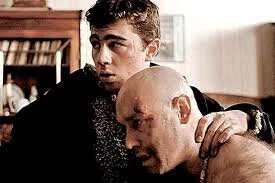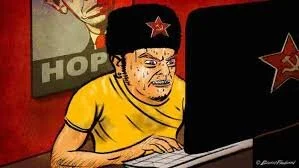
Soviet Self-Hatred
The Secret Identities of Postsocialism
About the Project
Until recently, this book was called “Russia’s Alien Nations,” but that is now the title of its introduction. Nontheless, the book examines imaginary constructs of postsocialist Russian identity through stories of encounters with an even more imaginary Other.
Secret Origins of the New Russians
Money was the radioactive spider that bit the New Russian Peter Parker.
A Coat of Not Many Colors: Vatnik
Vatnik takes visual inspiration from SpongeBob (he is roughly the same shape) and satirical inspiration from the work of Seth McFarlane.
We Won’t Always Have Paris
The window of the title is a magical object that allows for a new spin on an age-old Russian question: should I stay or should I go?
Rich Sovok, Poor Sovok
Mamin’s own window to international stardom was closed off abruptly.
“I’ll Buy the Wife Some Boots…”
The aesthetic of the MMM commercials is sovok from start to finish.
Selling the Cherry Orchard
On the battleground of market capitalism, the sovok is a metaphysical conscientious objector.
Sovok-lore
Even though the sovok is the product of Soviet/Russian urban folklore, he does not usually fit the traditional genres associated with it.
A Tribute to “Sovok of the Week”
For a brief, glorious time in the 2000s, a website established by three post-Soviet emigres devoted itself exclusively to the topic of sovok.
A Sovok Is a Person, Place, or Thing
"Sovok” becomes a diagnosis of a familiar, lamentable condition.
The Dustpan of History
"Sovok" circulated the same way as the best critical or anti-Soviet cultural phenomena did during Soviet times: as folklore.
Homo Sucker
As an alternative to Homosos, “zoe” (bare life, the life of the animal, non-political body) starts to look positively attractive
The Descent of Soviet Man
“Homo Sovieticus” is not just Latin; it’s a biological term that suggests both an evolutionary process and even the rise of separate species.
The New Soviet Man and His Gerontologist
Some of the men who populated Brezhnev’s famously geriatric politburo may have been “New Men” or even “New Soviet Men” in their youth
New Men in Love
The "New People suffer from a socialist version of the “terrible perfection” Barbara Heldt identified as the defining flaw of nineteenth-century Russian heroines




























